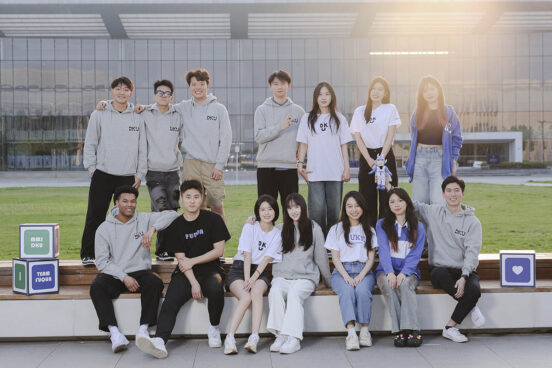Duke MMS Student Blog

Wanted: Consulting Job
MMS Grad Offers Tips on Recruitment Process
My classmate and recent grad Alex Swan (MMS ’12) is now a Global Business Services Consultant at IBM in San Francisco. Recruiting for consulting positions begins earlier than for other jobs, and I thought it would be helpful for current and future MMSers to have some first-hand knowledge about the process. Alex was very determined to work in management consulting, and I thought she’d be the perfect candidate for a Q&A on the topic:

Why did you decide to pursue a career in management consulting?
Since I was in high school, I have always had a passion for international politics and economics. I loved both subjects and as a result, I was a member of both my high school and college Model United Nations teams. In these United Nations simulations, we were challenged to solve complex international problems. I followed my interest in politics, economics, and business through doing summer internships with Senator Dianne Feinstein (D-CA), a San Jose Redevelopment Agency, and a Silicon Valley startup. After I realized that I did not want to go to law school and I was not going to be the next Kofi Annan, I figured the only way to solve the world’s inefficiencies was going to be through the private sector and working in management consulting.
When did you start preparing for the job search?
I started preparing for the job search in August.
What did you do to prepare for the job search and what was most useful?
In the summer, I researched companies and interview questions, crafted my resume, and reached out to Fuqua and MMS alumni about their consulting experiences. During the Fall Term, I practiced interviews and case studies with other MMS students and continued to speak to Fuqua alumni.
The most useful preparation I did was speaking to current consultants. I reached out to them in late August and early September. I talked to friends who successfully landed jobs in investment banking and consulting, and asked them for drafts of their successful “networking emails,” which I personalized for myself. When reaching out to alumni, it really helps to be genuine and appreciative! They are taking time to talk to you! When I spoke to them, I wrote down everything they said. This helped me to get a better understanding of how to describe consulting and why I wanted to work in that area. I probably spoke to over 30 alumni in the industry.
Another thing I found useful was working with other people on answering potential interview questions. My interview buddy and I would type out our answers then recite them to each other for feedback. This kind of mock interview preparation really helped my interview skills.
What was your experience during the consulting recruiting season? Was it difficult to balance out recruitment with school and other activities?
To be honest, consulting recruiting isn’t easy.
Consulting recruiters often do not know about the MMS program if they have not hired an MMSer before. Therefore, when going to info sessions, I would not only have to sell myself, but also sell and explain the program. I believe many people come into MMS thinking that the Career Management Center will get them a job, but in fact it’s really up to you. The more you do to create opportunities, the more opportunities you will have to choose from.
During the Fall Term, I literally had no time to do anything but go to info sessions, do homework, have informational interviews, and practice interviews. I was warned by previous MMSers that the only “free time” I would have during recruitment season would be for sleeping. The worst week I had was during the finals week of Fall Term I, when I had four interviews and three finals. After that week, I couldn’t have been more excited about Fall Break!
Take me through your experiences with the interview process at IBM.
The interview process with any on-campus recruiter starts with an information session. I first got to know IBM through attending their on-campus info session. After speaking to IBM recruiters, consultants, and partners at the info session, I understood that IBM had a lot to offer. During the following week, IBM Global Business Services (GBS) offered Office Hours where students met with consultants, providing an opportunity to learn more about IBM GBS and consulting. I was chosen to attend the session and got to speak to a senior consultant. I highlighted my experience in a Fuqua case competition where I worked in a team to decide who might win the current “mobile war” between Apple and Google — this emphasized my interest and insight on the industry.
I believe my time speaking with the senior consultant not only helped me learn more about IBM GBS, but also let IBM learn more about me as an individual. Thus, when I was chosen for an initial on-campus interview, I already felt that IBM knew me and my name. Prior to being selected for an interview, I had booked my Fall Break flight back home to California, and I was scheduled to leave two days before the interview. When I was chosen for the interview, I immediately asked the recruiter if I could reschedule or hold my interview in San Francisco. As anyone would guess, they said if I wanted to interview I would have to interview on the scheduled day in Durham. I was bummed I would have to delay my trip to California, but I rebooked my flight.
As for the interview, it consisted of three sessions with three different people within 1.5 hours in the Smith Warehouse in downtown Durham. I first had one case interview, then two behavioral interviews. When one of the interviewers asked, “How interested are you in IBM?” I immediately told him, “I changed my flight home for this!” Looking back on the interview, I think that changing my flight and mentioning it in the interview showed how serious I was about the position and about becoming a consultant.
Why did you decide to work for IBM?
I decided to work for IBM because it combined my passion for technology and consulting. I liked that IBM, compared to its competitors, often builds or owns the technology they implement. IBM can call on their experts to consult and solve complex problems with clients. I believe that being a technology company first and a consulting company second gives IBM an advantage over its competitors.
What advice would you give to members of the current MMS class who are interested in consulting?
The first thing I would recommend is to start early. If you know you are interested in consulting or a particular consulting company, reach out to alumni early, before every Duke undergrad and MMSer does the same. It will make you look more serious and will help you build stronger connections prior to the recruitment period.
Secondly, I would recommend listening during Business Communication classes, and especially pay attention to Fuqua’s career coaches and staff, including Mary Beth. The career service staff has great advice on job portals, how to write an informational interview email, how to learn more about a company, and how to frame answers to interview questions. I often sought advice from the career services staff after workshops. The best session is definitely the interview workshop. They will help you craft statements on introducing yourself and telling your story, which is crucial in the interview process.
Thirdly, it is important to prioritize. If you are not looking to gain employment with a US consulting employer that does on-campus recruiting then this does not apply to you. School is very important, but I decided that I was going to give 100% into finding a consulting position in the Fall. I knew that opportunities would be much harder to get after the Fall. I often did my career homework first and my real homework second. I made it a priority to email alumni, do informational interviews, and practice cases in my free time.



